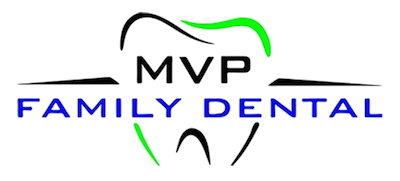When it comes to selecting the perfect toothbrush, many of us may wish our dentist could point out the right one right off the bat. If you've recently found yourself in the toothbrush aisle at the store, overwhelmed by the plethora of options, you're not alone. At MVP Family Dental, your trusted family dental practice in Jenkintown, we understand that the choice of toothbrush can contribute significantly to your oral hygiene routine. That’s why we’re here to help simplify the toothbrush selection process, ensuring you choose the right tool for your unique dental health needs.
The foundation of selecting a suitable toothbrush lies in its functionality. Focus on key features such as toothbrush size, comfort, bristle softness, and handle ergonomics. While aesthetics can be a consideration, they should take a backseat to functionality. Soft bristle toothbrushes should be a priority in your selection process, as they are essential to protecting your tooth enamel, minimizing gum sensitivity, and achieving a thorough clean. A quality soft bristle toothbrush can gently hug each tooth, effectively removing plaque, bacteria, food particles, and other unwanted debris without causing harm to your gums. Look for ADA approved toothbrushes, as they carry the seal of approval from the American Dental Association, indicating they meet high standards for safe, effective use.
Choosing between electric toothbrushes and manual toothbrushes is another critical decision. Electric toothbrushes have gained immense popularity for their numerous benefits. They do much of the work for you and often come equipped with built-in timers that help ensure you brush your teeth for the recommended two minutes. Once the time limit is reached, many of these electric toothbrushes will automatically shut off, promoting consistency in your brushing routine. Additionally, some models come with pressure sensors that alert you if you're brushing too hard, which is particularly helpful for maintaining your oral health.
For those with mobility issues or difficulty using their hands and wrists, electric toothbrushes can be a game changer. With their ergonomic designs and ease of use, they make daily brushing simpler and more effective. On the other hand, manual toothbrushes have their advantages too. They are portable, cost-effective, and don’t require charging or batteries, making them a practical choice for families on the go. When selecting a manual toothbrush, ensure that it has a comfortable handle and soft bristles to optimize your daily brushing experience.
To aid your toothbrush selection, here are some dental care tips provided by our team at MVP Family Dental:
- Assess Your Brushing Technique: Regardless of the type of toothbrush you choose, effective brushing technique is crucial. Use gentle circular motions and avoid aggressive scrubbing to protect your gums and enamel.
- Replace Your Toothbrush Regularly: We recommend changing your toothbrush every three months or sooner if the bristles become frayed. Maintaining a fresh toothbrush ensures optimal plaque removal and overall oral hygiene.
- Consider Your Personal Dental Care Needs: Factors such as sensitivity, orthodontic appliances, or specific dental conditions may influence your toothbrush choice. Speak with our team during your next checkup for tailored advice.
- Explore Toothbrush Comparisons: Before making a purchase, compare different toothbrush models, read reviews, and, if possible, consult our Jenkintown dental services team for recommendations.
- Embrace Oral Health Education: At MVP Family Dental, we believe in empowering our patients through education. Understanding the importance of effective brushing and proper dental care helps reinforce positive habits for the whole family.
In summary, your choice of toothbrush is a vital aspect of your personal dental care routine. By understanding the various toothbrush types available—be it electric toothbrushes or manual toothbrushes—alongside their respective benefits, you can feel confident in making an informed decision to enhance your oral health. Remember to look for ADA approved toothbrushes to ensure quality and efficacy.
Our family dental practice in Jenkintown aims to provide each patient with gentle dentistry tailored to their needs. With over 30 years of experience, our dedicated team is here to support you and your family with comprehensive care and comfort. Whether you're a new patient or a long-time member of our dental family, we are committed to helping you achieve optimal dental health. Schedule your next appointment today, and let's work together to maintain your beautiful smile!
